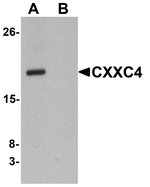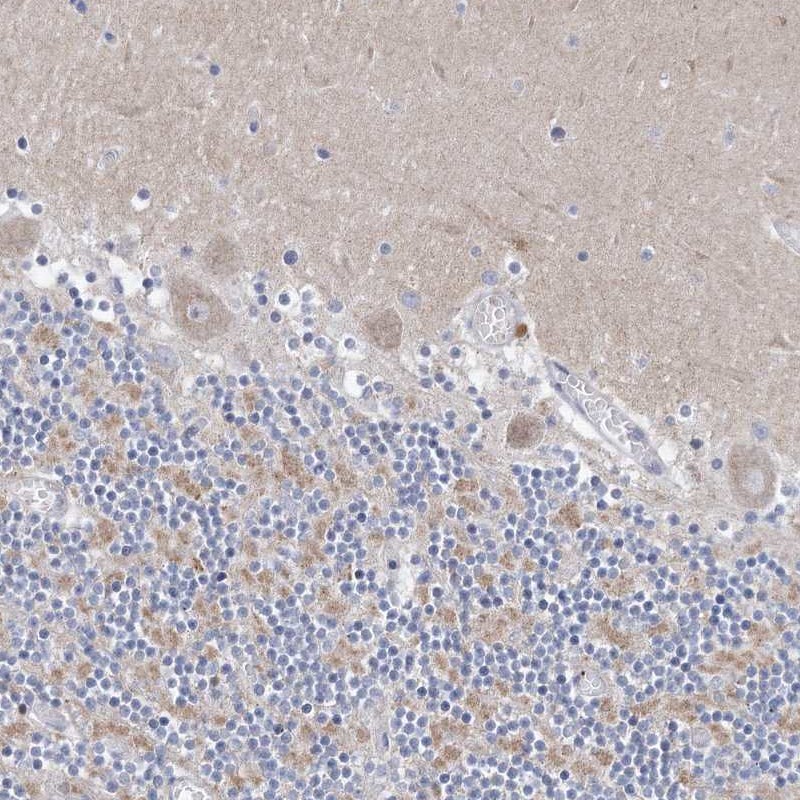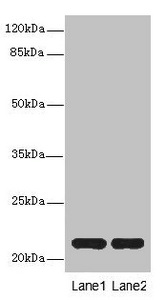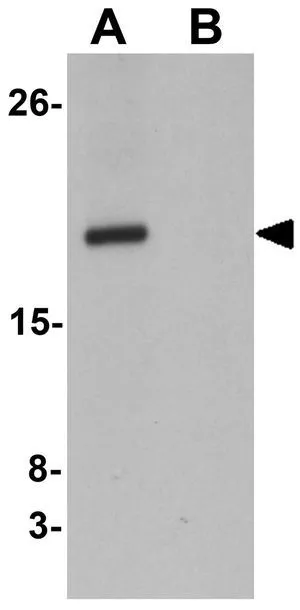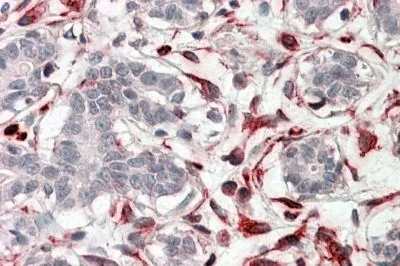
IHC-P analysis of human breast using GTX88280 CXXC4 antibody, C-term. Antigen retrieval : citrate buffer pH 6 Dilution : 3.8μg/ml
CXXC4 antibody, C-term
GTX88280
ApplicationsImmunoHistoChemistry, ImmunoHistoChemistry Paraffin
Product group Antibodies
ReactivityHuman
TargetCXXC4
Overview
- SupplierGeneTex
- Product NameCXXC4 antibody, C-term
- Delivery Days Customer7
- Application Supplier NoteIHC-P: 3-5microg/ml. *Optimal dilutions/concentrations should be determined by the researcher.Not tested in other applications.
- ApplicationsImmunoHistoChemistry, ImmunoHistoChemistry Paraffin
- CertificationResearch Use Only
- ClonalityPolyclonal
- Concentration0.50 mg/ml
- ConjugateUnconjugated
- Gene ID80319
- Target nameCXXC4
- Target descriptionCXXC finger protein 4
- Target synonymsIDAX, CXXC-type zinc finger protein 4, CXXC finger 4, Dvl-binding protein IDAX (inhibition of the Dvl and Axin complex), inhibition of the Dvl and axin complex protein
- HostGoat
- IsotypeIgG
- Scientific DescriptionThis gene encodes a CXXC-type zinc finger domain-containing protein that functions as an antagonist of the canonical wingless/integrated signaling pathway. The encoded protein negatively regulates wingless/integrated signaling through interaction with the post synaptic density protein/ Drosophila disc large tumor suppressor/ zonula occludens-1 protein domain of Dishevelled, a scaffolding protein required for the stabilization of the transcriptional co-activator beta-catenin. In addition, the CXXC domain of this protein has been shown to bind unmethylated CpG dinucleotides, localize to promoters and CpG islands, and interact with the catalytic domain of methylcytosine dioxygenase ten-eleven-translocation 2, an iron and alpha-ketoglutarate-dependent dioxygenase that modifies the methylation status of DNA. In humans, a mutation in this gene has been associated with development of malignant renal cell carcinoma. Alternative splicing results in multiple transcript variants. [provided by RefSeq, Sep 2015]
- ReactivityHuman
- Storage Instruction-20°C or -80°C,2°C to 8°C
- UNSPSC12352203

